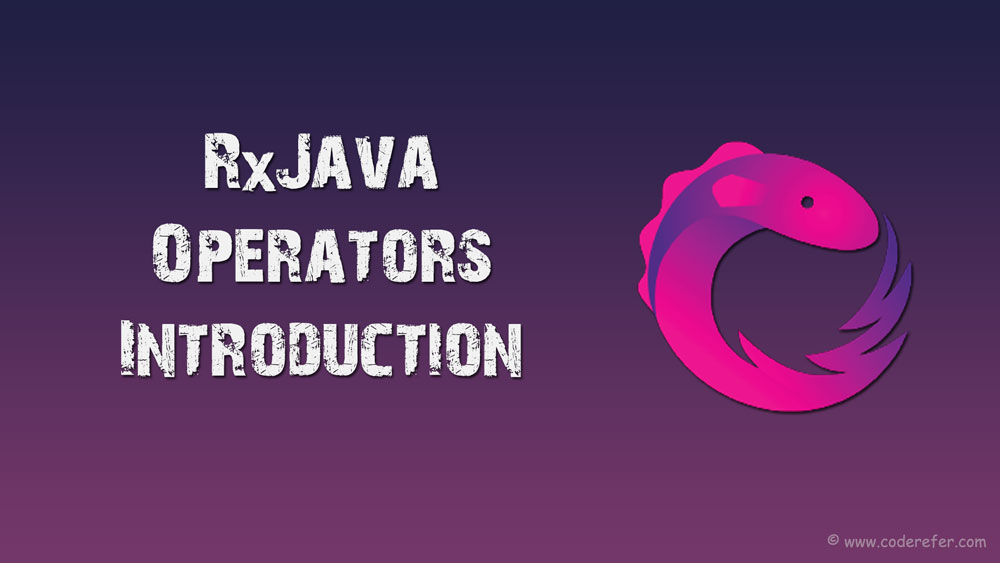RxJava Operators in General
In this article, we will continue discussing about RxJava Operators in general and what are the various types of RxJava Operators available. This article will be a brief introduction focusing on what are RxJava Operators and What are the types of Operators available in RxJava that we can use. In the following upcoming articles, we will discuss about the each category of Operators along with examples. We will go through them one by one by breaking these tutorial into few parts. If you are new to this site, consider trying these prerequisite articles for which will help you gain more insight towards RxJava and their basic usage.
This article is part of RxJava Intro series. You can checkout the entire series here:
- RxAndroid Introduction – RxJava Tutorial #1
- RxAndroid Example – RxJava Tutorial #2
- RxJava Operators In General – RxJava Tutorial #3 – You are Here
- RxJava Operators for Creating Observables – RxJava Tutorial #4
- RxJava Operators for Transforming Observables – RxJava Tutorial #5
- RxJava Operators for Filtering Observables – RxJava Tutorial #6 – Coming Up
- RxJava Operators for Combining Observables – RxJava Tutorial #7 – Coming Up
What are Operators in the World of RxJava?
Operators perform certain tasks on Observables. There are few operators that can Create Observables, and there are other operators that can perform various actions on Observables.
Types of Operators Available in RxJava
[adinserter block=”7″]
1. Operators for Creating Observables
These Operators help creating new Observables. The Operators in this category are: Create, Just, Defer, Start, etc.
All the operators for creating Observables along with example are described in the article in the below link:
RxJava Operators for Creating Observables – RxJava Tutorial #4
2. Operators for Transforming Observables
These Operators help transforming the items emitted by the Observables. The Operators in this Category are: Map, Flatmap, Buffer, etc.
3. Operators for Filtering Observables
These Operators help in filtering the selective items from Observable. The Most commonly used Operators in this category are: Filter, Distinct, Debounce, etc.
4. Operators for Combining Observables
These Operators help in combine multiple Observables to create a single Observable. The Most commonly used Operators in this category are: Zip, Join, Switch, etc.
5. Error Handling Operators
These Operators are used to help catching errors while working with Observables. Eg: Catch, Retry.
[adinserter block=”7″]
6. Observable Utility Operators
These operators are used for working with Observables. Eg. Subscribe, SubscribeOn, ObserveOn, etc.
7. Conditional and Boolean Operators
These operators are helpful to evaluate one or more Observables or items emitted by Observables. Eg: All, Contains, DefaultIfEmpty, etc.
8. Mathematical and Aggregate Operators
These are the basic Math Operators that will operate on entire sequence of items emitted by Observable. Eg: Max, Min, Average, Reduce, Sum, etc.
In the next articles, we will discuss each of these types in depth along with examples for each. The links will be updated to this article as required.


